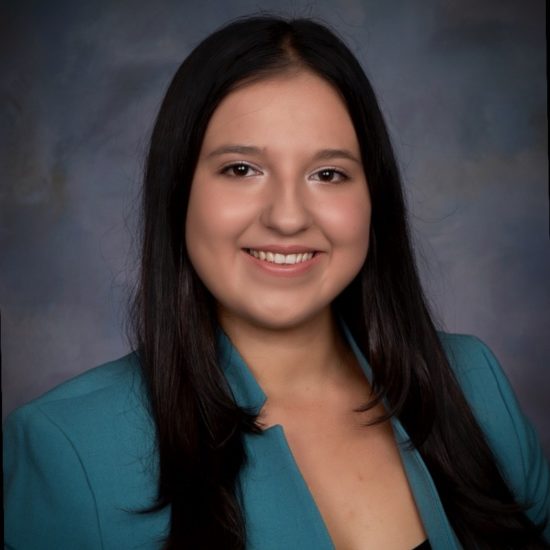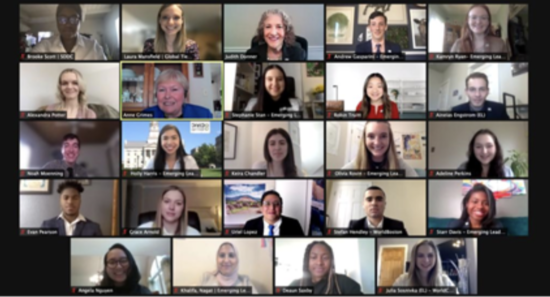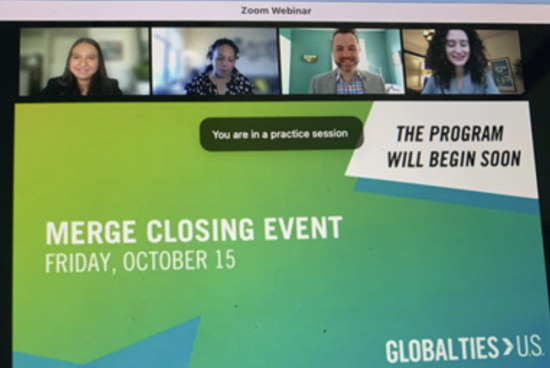By Stephanie Stan, 2021 Emerging Leader and MERGE Program Facilitator
 After graduating from the University of Michigan in 2020, I worked as a Programming and Communications Intern with Global Ties Detroit, where I promoted global exchange, development, and citizen diplomacy through programming efforts while also strengthening social and cultural bonds. I also initiated World Wednesdays—a social media campaign to raise awareness of citizen diplomacy and cultural exchange across borders—and conducted independent research on a variety of international exchange topics, such as global health diplomacy. My internship solidified my passion for pursuing a global health policy career focused on the role of diplomacy in international health outcomes.
After graduating from the University of Michigan in 2020, I worked as a Programming and Communications Intern with Global Ties Detroit, where I promoted global exchange, development, and citizen diplomacy through programming efforts while also strengthening social and cultural bonds. I also initiated World Wednesdays—a social media campaign to raise awareness of citizen diplomacy and cultural exchange across borders—and conducted independent research on a variety of international exchange topics, such as global health diplomacy. My internship solidified my passion for pursuing a global health policy career focused on the role of diplomacy in international health outcomes.
Following my internship, I was nominated for and accepted into the 2021 Global Ties U.S. Emerging Leaders Program. This program has helped me grow personally and professionally. From connecting with diverse young professionals and experienced leaders across diplomacy sectors at the Global Ties U.S. 2021 National Meeting to attending monthly professional development meetings with experts in international exchange, the program increased my insight to the field and excitement to enter the global health policy and diplomacy sector. It also allowed me to broaden my network of diplomacy, exchange, and public policy professionals.

Stephanie (pictured in the center second row from the top) and the rest of the 2021 Emerging Leaders Cohort, meeting virtually with Anne Grimes, Director of the Office of International Visitors, prior to the 2021 Global Ties U.S. National Meeting.
As part of the Emerging Leaders Program, each participant is tasked with implementing a service project. For my project, I served as a program facilitator for the MENA-USA Empowering Resilient Girls Exchange (MERGE)—a virtual exchange of 15–19-year-old women from the United States and Middle East / North Africa (MENA) region, implemented by Global Ties U.S. and supported by the Stevens Initiative.
As someone passionate about global mental health outcomes and advocacy in vulnerable populations, MERGE strongly aligned with my interests and goals. Participating as a facilitator allowed me to contribute to these interests and gain skills applicable to my future global health policy career. Throughout the program, I supported young women from different cultural backgrounds to develop, practice, and discuss stress-coping mental health resilience skills through synchronous and asynchronous cultural exchange activities.
It was interesting to see similarities and differences in how young women express and cope with mental health challenges in different countries and in different cultural settings. I enjoyed seeing how MERGE positively impacted participants as they shared their experiences, and their eagerness to connect with peers around the world during and after the cultural exchange. I value the opportunity MERGE created to participate in citizen diplomacy to promote female empowerment, community mental health advocacy, and emotional resilience while also learning how similar populations from different backgrounds experience mental health in unique ways.

Stephanie (top left) participating in the MERGE Closing Event as a panelist, alongside representatives from Global Ties U.S. and the Stevens Initiative.
I am pursuing a global health policy and governance career centered around understanding the role of public diplomacy and cross-border collaboration to improve health outcomes at international levels. My goal is to work with multilateral organizations such as the World Health Organization, United Nations, and World Bank to improve health outcomes globally through implementation science and data-driven health policy solutions.
I cannot describe how thankful I am for the opportunities I had as an Emerging Leader, and for the incredible connections I made while working with the Global Ties Network. These experiences have been key moments in my journey and career path—preparing me for a globally-focused career while also broadening my perspective and interest in foreign exchange.
Stephanie Stan is a Master of Science in Global Health candidate and Margolis Scholar in Health Policy and Management at Duke University. She is also a research assistant at the Duke Global Health Innovation Center, working on projects aimed at providing evidence-based data tracking, insights, and policy recommendations to help organizations and countries address COVID-19.
